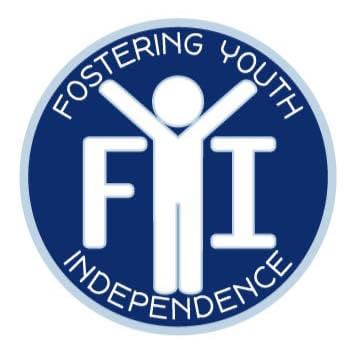With May as National Foster Care Awareness Month, local non-profit Fostering Youth Independence is highlighting a particular challenge faced by youth aging out of foster care, homelessness.
The statistic is that 36% of these vulnerable foster youth become homeless within the first 18 months of aging out of the system.
One way FYI can help these youth is through the organization’s Emergency Financial Assistance Fund which can support these youth experiencing the trauma of being homeless, explains Carolyn Olsen, FYI’s executive director and co-founder. “People may wonder how foster youth become homeless. There are many reasons, but a couple of situations experienced by FYI youth illustrate the complications and challenges foster youth face.”
She pointed to an FYI youth, “Lucia,” who was living in the home of her boyfriend and his family when she joined FYI shortly before her 21st birthday.
Through California’s AB12 extended foster care program, she was receiving a monthly housing allowance, which she used to pay rent to her boyfriend’s mother for her room. On her 21st birthday, the housing assistance ended, but she continued to pay her rent with income from her part-time job. She was taking classes at College of the Canyons, but frequent arguments with her boyfriend and what she described as an “unhealthy living environment” were taking a toll on her emotionally, and her grades began to suffer.
She expressed a desire to move out, but with limited funds available for rent, she worried that she couldn’t find a place she could afford and would become homeless. She continued to live in the chaotic situation for almost a year, until the boyfriend’s cheating and emotional abuse became too much for Lucia to bear. FYI helped her find a room to rent and provided furnishings, and her Ally gave her the emotional support she needed to move out.
Olsen added that another one of FYI’s youth, “Emma,” and her younger siblings had been reunified with their biological mother after spending some time in foster care.
Because Emma had been reunified, she was not eligible for a housing allowance or transitional housing program when she turned 18. So, she continued to live with her mother, siblings, and another adult who had moved in with the family.
Emma told her FYI Ally that her home situation was “toxic” but would not elaborate. She moved out a couple of times but would return back to her mother’s home to make sure her siblings were safe. Her mother would leave town and expect Emma to provide food and care for the siblings even though she did not leave them any money.
At some point, Emma suspected that her siblings were being abused. Knowing that FYI is required to report suspected child abuse, she was not comfortable sharing her concerns with her Ally or FYI staff. She feared that if a report was made, she would lose her family and become homeless.
Finally, when her suspicions were confirmed, Emma felt she had no choice but to make a report to the Department of Child and Family Services and asked the FYI staff to help her make the call. The siblings were subsequently removed from the home and placed in foster care. Her mom was angry, and Emma became homeless, just as she feared. FYI paid for Emma to stay in a hotel until safe housing could be secured for her.
“Imagine being 19 years old and choosing to save your siblings from abuse,” Olsen said, “knowing that the decision will result in losing your home and family. Or, consider being 21 years old and choosing to live with an abusive, cheating boyfriend because you have nowhere else to go. These are choices no one should ever have to make. But this is reality for many of the youth we serve, who often sacrifice their own safety and well-being in order to have a roof over their heads.”
Olsen explained, “we serve youth who are aging out of the foster system and have no permanent families to turn to, and therefore need critical support to help them become independent, thriving adults. Because many foster youths who have not found permanent homes are just one step away from homelessness, poverty or incarceration, our mission is to give them tools and support, and an important part of this is ensuring they are getting an education, whether community college, four-year university or trade school.”
She concluded, “at FYI we’re also here to provide support for youth facing crisis situations, but we need the community’s support. We hope during this National Foster Youth Awareness Month that people would consider contributing to our Emergency Financial Assistance Fund to provide temporary housing and meet other financial needs for youth like Lucia and Emma.”
Donations can be submitted by visiting the non-profits website or, alternately, contacting FYI at (661) 360-1500.
Like this:
Like Loading...
Related





 Tweet This
Tweet This Facebook
Facebook Digg This
Digg This Bookmark
Bookmark Stumble
Stumble RSS
RSS




























REAL NAMES ONLY: All posters must use their real individual or business name. This applies equally to Twitter account holders who use a nickname.
0 Comments
You can be the first one to leave a comment.